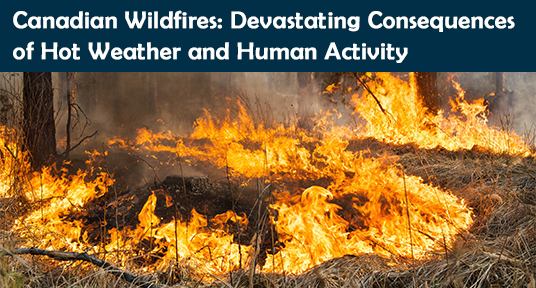
Canadian wildfires have been devastating this year due to hot, dry weather and human carelessness. The fires have resulted in a massive burnt area and a haze affecting millions of people. The unusually warm and dry spring, with significantly less precipitation, has left the soils and forests dry and prone to rapid fire spread. Climate change is also contributing to the frequency of extreme conditions. The smoke from the wildfires has reached the eastern United States due to a low-pressure system blocking its transport eastward. Lightning and human activity, such as an ATV catching fire, have been the primary causes of the fires. The trend of increasing wildfires in Canada and globally is attributed to climate change and extreme weather conditions. The fires may continue for months if the warm, dry weather persists.

